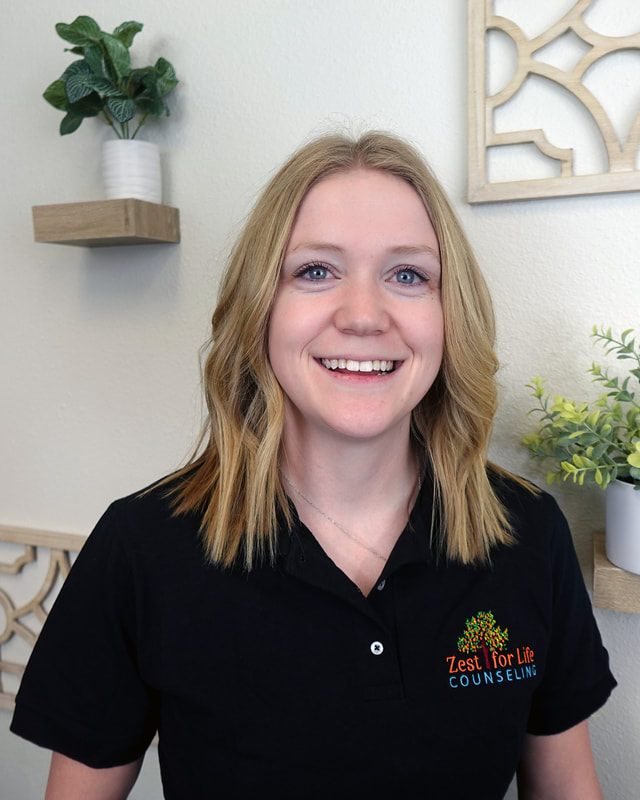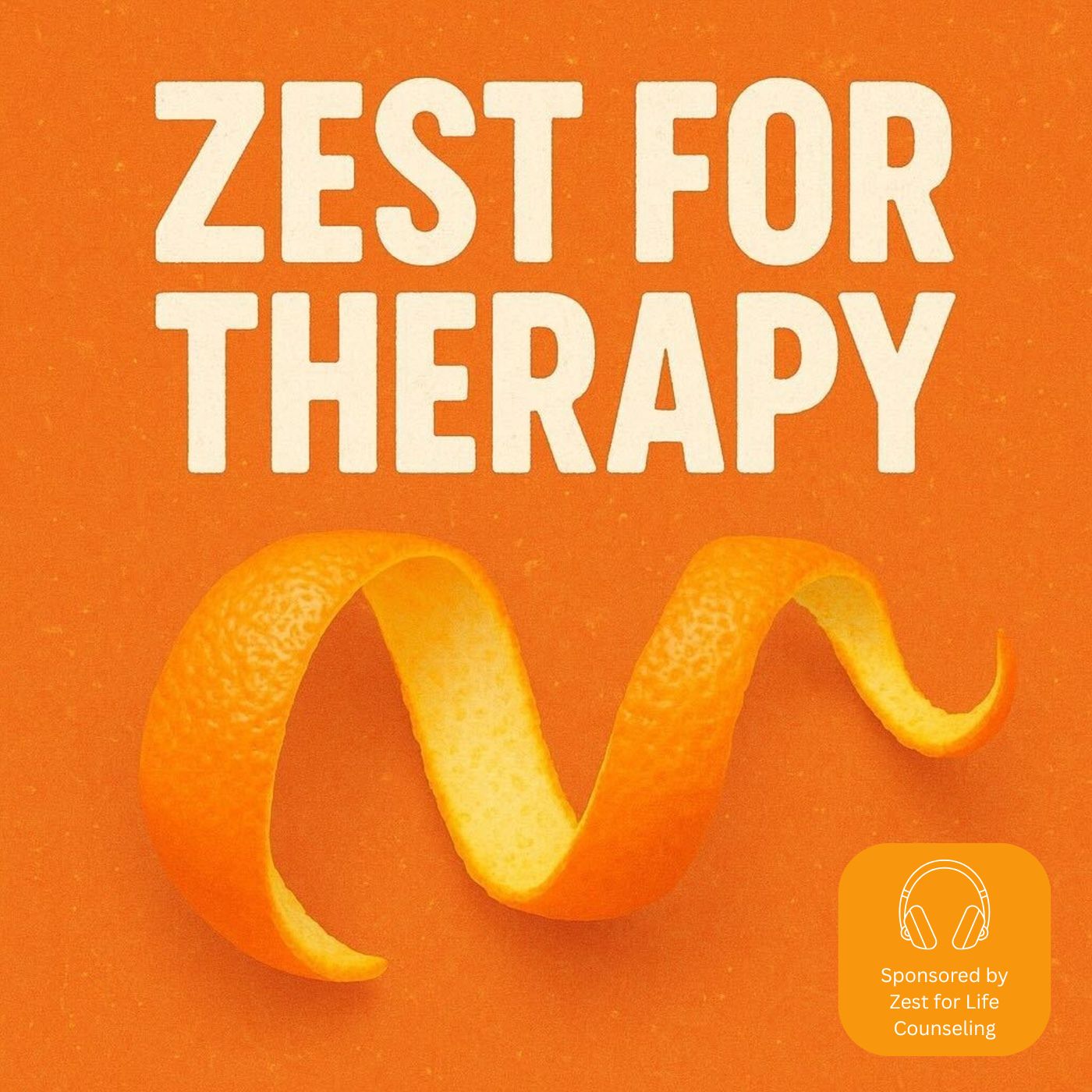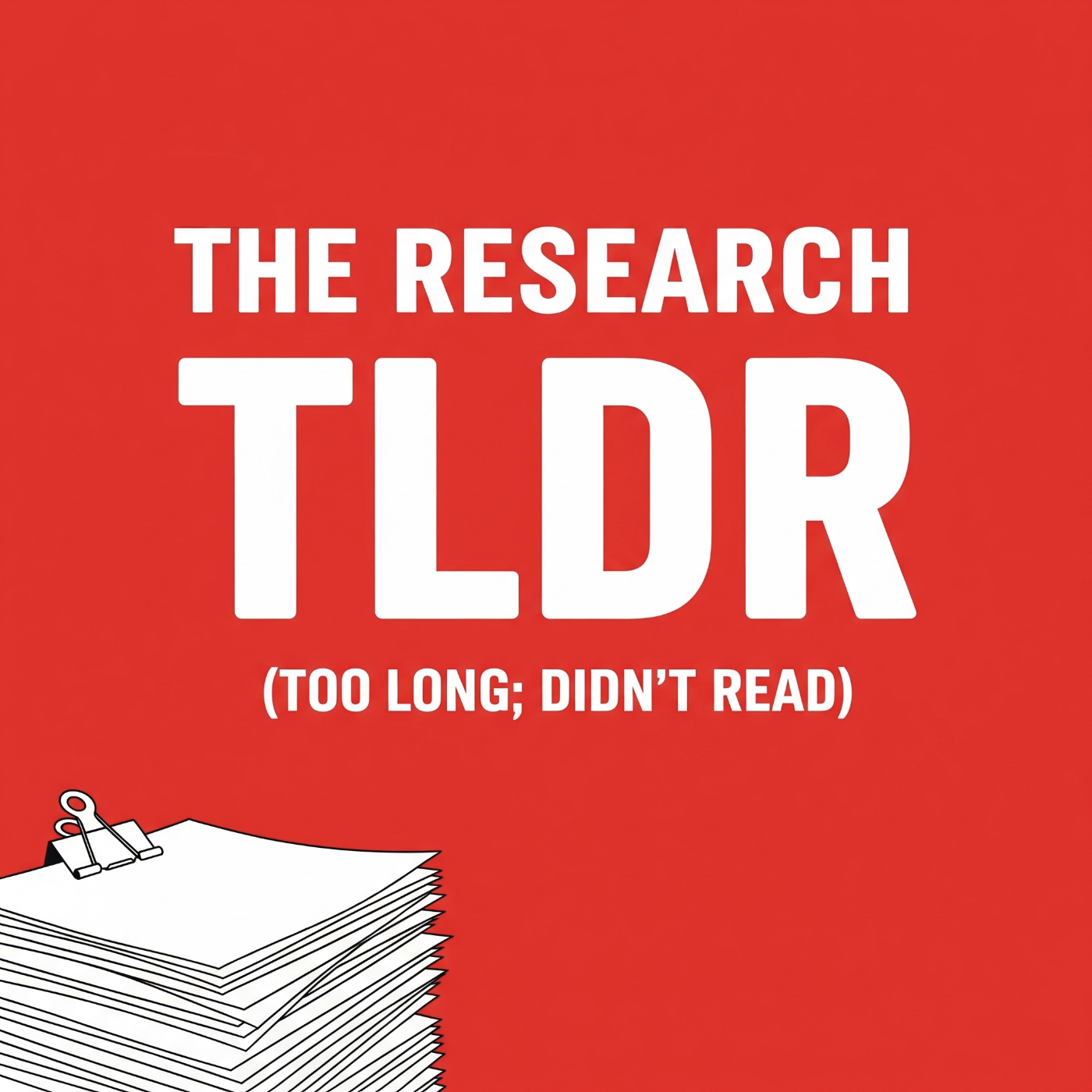Episode Transcript
[00:00:00] Speaker A: Foreign.
Welcome back to Zest for Therapy podcast. We are your hosts, Celeste Webster, mswi, Courtney Domin, am ft and Cole Childers, mswi. Back with another episode of Voices in the Field where we host Q&As. In this case, not a Q and A. We're just sharing fun stories. Today is more of a story time with contributors from various therapists in the field.
[00:00:29] Speaker B: Awesome. As a disclaimer, while we are therapists, we are not your therapists. This podcast is intended for informational and entertainment purposes only. It does not constitute therapy, clinical supervision, or medical advice. Opinions expressed are our own and subject to change as research evolves. We do our best, but we're human and that means we may make mistakes.
[00:00:49] Speaker C: Okay, Celeste, get us started on today's topic. What are we talking about today?
[00:00:54] Speaker A: Today we're diving into those cringe worthy first sessions that we've all had as new therapists or maybe even just like first session moments.
And we'll be sharing our own stories as well as sharing a few collected from our listeners and fellow therapists. So I'm excited. Some of these will have you cringing and some will have you laughing and maybe a bit of both.
So we've got a good collection today.
[00:01:17] Speaker B: Yeah, it's going to be great. So while it's really common for therapists and new therapists to experience imposter syndrome, to be second guessing everything, to be like, do I even know what I'm doing? Today's gonna be pretty fun because we're going to be talking about instead of just that weird mix of excitement and dread, we're gonna be exploring these fun mistakes that we can look back on and actually see growth from instead of setbacks.
[00:01:40] Speaker C: I think sharing mistakes is important because nobody's going to be perfect like even the best therapists, you know, or like professors that you look up to have made mistakes and have felt awkward session. And I think it helps us feel less alone and more willing to grow when we know it's not just us and that being a good therapist doesn't just happen, it's something that we work towards.
[00:02:02] Speaker A: Yeah, absolutely. I remember when, I don't know what happened, but I just remember my supervisor shared a story after I did something that was like kind of a little bit of an oopsie. And I was like, man, thank you for sharing a story of when you were an intern because it makes me feel a lot better. She's like, don't worry, I messed up way worse anyway, so. Well, can I just get in? I just remember my first Session, just prepping like crazy. I was over prepared and overstressed. And then a few minutes before the session just, like, dragged.
[00:02:33] Speaker C: Like, literally.
[00:02:33] Speaker A: I had five minutes till session, but I was just pacing my office back and forth. I told myself I was getting my steps in, but also, I was just so stressed trying to practice my deep breathing and relaxation.
But what about you guys? What was it like right before your first session?
[00:02:49] Speaker C: I honestly don't remember my very first session, and I think that's kind of nice. Like, I remember my first session co therapist. Like, I remember who they were, but that's about it. I do remember, however, very, like, early on realizing that therapy wasn't something I would just be good at, which is, you know, it sounds funny and, like, most people would maybe assume that, but I kind of thought that things would just click for me. And some things did. But there were skills that, like, felt awkward and weird and, like, some interventions I definitely had to, like, practice.
And then it was like, oh, like, I actually think this is gonna take work to get good at. So I definitely remember, like, my first couple of sessions being really sweaty and being really nervous. And thankfully, like, I had a co therapist to lean on who was, like, a year ahead of me, could kind of, like, walk me through it. And she was always like, Courtney, like, with those good questions. And that always made me feel really nice. But I definitely had no idea what I was doing at the time.
[00:03:57] Speaker B: Totally fair. Yeah.
[00:04:00] Speaker A: Yeah. Honestly, my first session kind of passed in the blur. So after pacing my office, you know, it. And the session actually started. Yeah, it was just like a roller coaster fast. Like, it was gone. I had prepared all these things, and then I realized, wait, this is, like, the first time I'm meeting with this person. Like, I'm literally just talking with them and getting to know them. So, like, that really eased my anxiety that I had built up. You know, the shaken soda can was very primed to explode, but I was like, wait, we're okay.
[00:04:27] Speaker C: That's a good analogy.
[00:04:29] Speaker A: So that really helped me and get into the right headspace. But I will say that there were some awkward silences and, like, times when, like, in those silences, I was like, okay, so, like, I should talk. And then, like, what next? I word vomit all this random stuff, and I'm like.
And just, like, trip over some things and just thinking, like, why am I talking right now?
But, like, still talking. And so just feeling like, wow, that was definitely not perfect, but honestly, not bad.
So giving myself credit with that. But I remember after finishing my first session, I was finishing notes and heard Cole finish his first session down the hall. And so I was like, I gotta go check it out. Because I knew that it was his first session. We both had him the same week.
[00:05:07] Speaker C: So I was like, oh, I love that.
[00:05:10] Speaker B: Yeah, this was wild. So.
So I had the classic like over preparing, meeting a client for the first time. My first client didn't know what to expect, didn't know everything, confidence wise. So over preparing, one of the things I tried to do to calm myself down was I went in our break room, I got a fun size pack of M and Ms. And I was like, these will be good and I'll eat these. Hopefully this calms me down a little bit. And for some reason I maybe sniffed in the middle of eating them, but a whole M and M went into my sinus and it was, oh, my word, this was painful.
And I was like, okay, this sucks. I don't know what's going on, but I have 15 minutes until my client shows up. Turns out my client shows up 15 minutes early and he's like, are you Cole? I'm like, yeah.
Right before he showed up, I used the last two tissues that we had in my office. And since I was still new and my first session, I didn't know where the storage closet was to get more tissues. So I didn't know we had extras. So he comes in and this client just has some really, really tough issues that I wasn't prepared for and I did not know how to validate or anything.
And during that, I had chocolate snot coming out of my nose.
[00:06:34] Speaker C: No.
[00:06:36] Speaker B: And I was out of tissues. And so I had snagged a paper towel and I was trying to hide the paper towel, like. Yeah, yeah. Shaking my head, trying to be all sophisticated.
And I was just dabbing my nose while I had chocolate snot coming out. And I couldn't focus because in between my eyes was burning.
It was miserable. And luckily the pain went away and the snot, chocolate snot, stopped coming after the first half of the session.
[00:07:03] Speaker C: Oh, my God.
[00:07:03] Speaker B: But I don't think I'm ever going to forget that. And I really hope that client didn't notice. I don't think he did, but maybe he was just being polite.
[00:07:10] Speaker C: Did they come back after that?
[00:07:12] Speaker B: Did not.
[00:07:13] Speaker C: No.
[00:07:14] Speaker B: I did not see this client again.
[00:07:18] Speaker C: Oh, my gosh. That's actually so rough.
[00:07:23] Speaker B: It was really bad.
[00:07:25] Speaker C: That's so memorable, though. You will never forget that.
[00:07:27] Speaker B: No.
And I'll never forget the feeling of candy shell coming out of my nose. Either.
[00:07:33] Speaker A: Yeah.
[00:07:33] Speaker C: How alarming.
[00:07:35] Speaker A: That's hilarious, though.
[00:07:36] Speaker C: Wow.
[00:07:36] Speaker A: I remember hearing that after my first session. I was like, okay, dang, that's crazy.
[00:07:43] Speaker C: I'm not gonna lie. I would have tried to buy myself the most time possible to get that sucker out of my nose.
Okay, that's a. That's a. I don't think anyone will be able to top that. But let's see if any of our. Our submitted stories will try. So here are some of our first session first fumble stories from some of our fellow therapists.
Obviously, some details have been changed to protect the privacy and confidentiality of both the therapist and the clients.
So the first story we have is my first ever session as a graduate student was with a very reserved man who our team later learned, hated working with women, which I am.
I am an extrovert and an external processor. And after our first session, he almost ran out of the room and had his case manager fire me. So the moral of the story is, you'll be okay. It's a learning process for everybody.
[00:08:42] Speaker A: Oh, man.
Having them run down the hall and tell the case manager, yeah, get them out of here.
[00:08:49] Speaker B: Yeah, that's a good, good example that it's okay that we'll all probably be fired by a client. We're not a good fit for everyone, and that's how it is.
[00:08:59] Speaker C: And one of my old professors would say all the time, one of the reasons that people cross ethical lines is because they want their clients to like them. And he would, like, drill into our minds. It is not like your clients liking you. Like, it's not about your clients liking you. I think this is a really good example of that, because, you know, not every client is going to like you. Like, there's nothing wrong with this therapist and this first session other than, like, it wasn't a good fit. There's nothing that they could have done to, like, make them like you. So just kind of recognizing that that's not the goal. You'll. You'll be okay. And even if it's not a good fit, like, there's a therapist out there for them who is. You just have to show up the best you can.
[00:09:42] Speaker A: Right? Especially later learning, like, they don't like working with women. It's like, if that's what you are, like, okay. You can't control that, really.
[00:09:49] Speaker C: So, like, exactly.
Our second story. My first session ever, I was literally going through CBT in depth for a client where it wasn't even applicable treatment for them.
I thought I was doing okay, but the client was very Confused. Let's say I take that session now I have a much better footing. First sessions are intakes for, for me, where I get all the background information and goals for therapy. Then the next sessions are going through what's important to the client while actively listening and empath, emphasizing and using different modalities when needed.
It gets much better. It just takes time to find your voice and how you use it in therapy sessions.
[00:10:30] Speaker B: Yes.
[00:10:31] Speaker A: I just picture the intern that's in school in like a treatment class, you know, figuring out all these different modalities. And you're like, yeah, I'm so stoked to, like, do this right now. Yeah.
[00:10:40] Speaker C: They show up day one, and you're like, hey, cbt.
And they're like, actually.
[00:10:48] Speaker A: Right.
[00:10:48] Speaker B: That's the mindset. I feel like I was kind of put in as well as, like, yeah, I know what's best for this client before I even meet them. I read a one paragraph background history and I learned that the hard way. The story wasn't me, but I can relate to it. Well.
[00:11:02] Speaker A: Yeah, honestly.
[00:11:03] Speaker C: Well. And I think it's a good reminder, like, especially if you have not had your first session yet, like, you're in grad school school and you're like preparing for that or, you know, after grad school and you're having your first session again after grad school, like, there really is the basics. Like they were saying. The first one is like, getting to know them, covering all of your paperwork bases, and then like helping understand their goals and what they might need.
[00:11:28] Speaker A: Absolutely. Yeah. So as we share these stories, like, those are the ones we got, and I'm sure there's so many more, but the common themes are those awkward silences, having lost for words, just kind of like fumbling around ourselves a little bit too much. Note taking is another theme. Maybe not from these stories, but forgetting clients names.
[00:11:49] Speaker C: Oh my gosh, that's the worst.
[00:11:52] Speaker A: Not uncommon though, unfortunately.
[00:11:54] Speaker C: Yeah. Okay, here's the thing.
[00:11:58] Speaker A: I.
[00:11:59] Speaker C: Especially when I first started doing therapy, I would never say clients names. I would just read it and then they would show up and then I'd be like, talking to them. But in a couple dynamic, the worst case scenario is forgetting one person's name.
And that has definitely happened to me where it's like, they're newer to me. And so now I've gotten in the habit of like, I will use their name in session with them a couple of times. So then it's like whenever they show up, I'm like, yes, name, face.
But yeah, it's not that I've ever forgotten a client. But sometimes when you just say you or you talk directly to them and you don't ever say the name right.
[00:12:43] Speaker A: Or honestly, I've heard like having a series of clients that somehow have the same like starting letter of the name and just like a bunch of them and so then you like maybe use the wrong name in session.
[00:12:58] Speaker C: That is also worst case scenario.
[00:13:00] Speaker A: That is another worst case scenario. I've heard about it though.
[00:13:03] Speaker B: I've learned, I've had the chance to work with some teens and I've learned that when a parent's in session, because when I'm looking at the patient file, I see the client's name and not the parent's name unless I look at the emergency contact info. So I just, I know the client's name, hopefully, but I always forget the parent's name. If the mom or dad is in there or both, I just say mom, dad. Even if it's a 17 year old, it's awkward for them. I still do it.
[00:13:29] Speaker C: Well, that's so funny is sometimes I will do that strategically or like structurally guess is more accurate. And then other times it's just like, no, it's not in there today. It's not, it's not in the brain bank. It's left.
[00:13:44] Speaker A: It's going on vacation.
Another huge one is over advising that goes back to like the CBT example of just like, oh yeah, I've got this all prepared. You know, another like over preparing example. Just like we come in with all these different things and it's like, yeah, we're just going to give you all this information. Fire hose, let's go.
And maybe that's not what they need, but that's common. Super common for new therapists.
So what are some of the lessons learned?
[00:14:09] Speaker C: That's the question.
[00:14:10] Speaker B: Yeah, that's, that's a good, good question. My mind goes to something you touched on earlier, Celeste.
I learned about myself that when I'm unsure about something, the word vomit phrase you use, I use more words when I'm not sure about something or I get nervous over explaining things and it gets really awkward because then it becomes less clear the more words I use or using too much clinical, clinical vernacular with the client.
[00:14:39] Speaker C: I'm actually so bad at that, it's hard. I do that a lot.
[00:14:43] Speaker B: Yeah, they're like, what is diffusion?
What is this cognitive reframing? What?
[00:14:49] Speaker C: I actually did that the other day where I, where I was going about my business and I was like, yeah, so you're ruminating and they're like, wait, what is ruminating? And I was like, oh, yeah, like you're overthinking. And they're like, yeah, I do that all the time.
[00:15:04] Speaker B: They're like, oh, yeah.
[00:15:05] Speaker A: They're like, what's ruminating?
[00:15:06] Speaker C: Exactly.
[00:15:08] Speaker B: So, no, I love it because these moments are like the perfect opportunity to recognize the growth potential we have, even though it can be so easy to lock on our potential mistakes and beat ourselves up for them. So talking about these stories reminded me of my favorite cheesy LinkedIn graphic. I saw this last week. It showed the relationship between success and failure. And we usually think of those as opposites, but. But this graphic showed it was like a pole in the middle of a fork in the road, kind of with arrows showing. Like, you'd see this in movies, like, this country is this far away, or this Neverland is 20km away, like one of those signs. But it was a fork in the road. But both failure and success were pointing the same way. And I think it was a good reminder that our inevitable mistakes in therapy sessions are opportunities and not setbacks. It's not a plus minus situation. It's an extra opportunity to have more positive growth all the time so we can reflect and grow on that rather than believing our clinical ability is shrinking with each mistake.
[00:16:05] Speaker C: Right.
[00:16:06] Speaker A: Yeah.
[00:16:06] Speaker C: I actually really like that. Kind of like the saying, the only way out is through.
Yeah, that, like, go over it.
Because it's true. Like, you can't become a better therapist by not practicing therapy.
And practicing therapy means that you are not gonna know everything. You cannot know everything at once. Because some of these skills have to be learned by doing it. Like, you can learn it intellectually, but that doesn't mean you're good at applying it. Like, you have to be able to be willing to make mistakes and practice that. And I think it's important too for our clients to know that we're human, that we're not like all knowing therapy beings.
Like, we still show up as a professional in the room. And I think there are three things to.
Or keep that in mind or to keep in mind. And the first one is like pause and breathe before your first session.
Regulate as much as you can possibly regulate. Like any skills that you know do those things, you're going to be in a much better headspace to be able to listen and think if you're not in your stress response. So pause, breathe, admit that it's okay not to know everything, because you don't know everything.
You actually don't have to know everything. To be a good therapist. Actually, every therapist doesn't know everything.
[00:17:33] Speaker A: Good to know honestly, that's where imposter syndrome comes in, is where we expect ourselves to know everything. Exactly where it hits hard and in.
[00:17:41] Speaker C: The last one is like having humility and being willing to repair or build trust.
So I think staying calm is huge for both you and the client.
Recognizing and reminding yourself, like, it's okay not to know everything. There's going to be silences, it's okay for you to sit and think about something they asked you.
It'll be easier for you to stay calm in the session and to be able, like keep a level head. And if you stay calm, it shows the client that when they're sharing hard things that you're capable of hearing that. Because in a way, like we're there to help co regulate the client. And if we are, our system is all out of whack, you know, we aren't as able to help them regulate through the things that they're going through.
And so that's something to like learn and practice. But I believe like the, one of the fundamental parts about being a therapist is to show up and listen. And if you just remember, like my one goal here is to show up and be a human and be a person for this person who can hear them, who can listen to them. And then you go over all the paperwork, stuff you need to do, first session, you're set.
Like it's a. Being a professional means like you can say that you don't know something.
That's the humility aspect.
But the building trust is if you don't have an answer, you can say, you know what, I don't have a good answer for that, but I'll look into it and I'll come back next session and then follow through, come back next session with the answer or with something for them to do.
And I think that can also show them that they can learn to trust you even if you don't know everything.
[00:19:21] Speaker A: Honestly, that's been my favorite card, especially as an intern, just to like say, hey, I'm not going to sit here and pretend to be the expert on co parenting or something, you know, and then it's like, but I am going to have that be my homework. Like my homework today is to do all the research that I have time for, to like bring all the resources that I can for you next week. And then your homework is, yeah, I'm like, that's my favorite card. Absolutely.
Other useful resources is supervision. Honestly, supervision is there for a reason it's so key. It's been so helpful as an intern.
And then it continues until we're licensed. But honestly, it can continue till forever.
Just like, utilizing our peers is huge because we're not supposed to do this alone. Every professor ever is like, don't practice as an island. And they say that for a reason.
That peer support consultation. Yeah. What?
[00:20:17] Speaker C: And Michelle, on our podcast episode last week was also talking about, like, even in private practice, like, finding people to consult with, you will continue to not know everything.
[00:20:31] Speaker B: Right. I love that so much. Yeah. Supervision has been huge in peer support. It's.
I'd recommend to anybody with the opportunity to grow your network. Networking is so big in the therapy world, so if you can have an internship or a placement or practicum at a location with lots of peers or lots of open doors for higher ups and seasoned therapists, that's the best.
Because generally, from what I've learned, therapists want to talk to you. They want to help improve other therapists. It's not a competitive space.
It's a space to help people. We're in this to help people.
[00:21:09] Speaker C: Yeah. Thank goodness. Could you imagine if it was like, I'm gonna keep all my advice to myself so I can be the best therapist and you can't be.
[00:21:18] Speaker B: I'm gonna teach you harmful practices.
[00:21:20] Speaker C: Oh, that would be bad level of ethics.
[00:21:24] Speaker A: I just think, like, can you imagine if it was, like, sales? You know, where they, like, twitch their own. But, like, sales I could never do, because every week you're, like, put on a standing with your peers, like, oh.
[00:21:34] Speaker C: Yeah, like public rankings.
[00:21:36] Speaker A: Yeah. I won this many. I sold this many. And she's like, oh, my gosh.
[00:21:41] Speaker C: I applied this many interventions. This many people told me, thank you. This week.
[00:21:46] Speaker A: I'm number one this week.
[00:21:48] Speaker C: Yeah, no, it definitely same goal. I have not found that environment at all. I. I think a lot of our advisors and supervisors and co workers, like, are so willing to share.
And I think as you continue to do therapy, like, some of those basic skills, like listening, validating, being in the room while being calm, implementing basic interventions, like, that will become second nature to you. Like, I remember learning about validating. I don't know if I've talked about this before, but I remember, like, there was a quiz, and it was like, select all that are validation. And I, like, selected the wrong one. And I was like, what? Like, how did I not know that that wasn't validating or one was more validating than that one? And now, like, I've. I've watched A video of myself doing therapy, and other people have watched me doing therapy, and that's the first thing they comment on, is, like, you are constantly validating, even if it's not, like, your words, so that these things will become second nature to you. And it's the perfect time to practice, because while you're in grad school or you're under supervision, that means you'll have a lot of insight.
So you can practice things that you don't know, get a lot of feedback. You have people in your corner, and you don't know everything.
But even if just knowing enough, like, to be there for that one session, having one thing that you can bring that helps them towards their treatment goals, like, that's enough for now. Like, it's enough to be able to show up and have something to offer them that they can't offer themselves.
So obviously, like, we're always going to be growing and learning, but just keep that perspective of, I'm always going to be doing this in a way that's this is a part of my life and not in a part of, like, I'm never gonna get there.
Like, you are gonna get to the place where you feel comfortable doing therapy, and you're still not gonna know everything.
[00:23:47] Speaker A: Right?
[00:23:48] Speaker C: And still being willing to learn.
[00:23:50] Speaker A: One of our fellow interns said something along the lines of, like, I walk into the therapy room and I feel like I have meat and this, like, rusty spoon. And that's all the tools that I have.
It is like, let's go.
And it's like, I relate to that so much as an intern. It's like, you want to have all these tools. And that doesn't mean that you aren't going to be a good therapist. It just means, like, you're starting out. But all the, like, professors. Not all the professors. A lot of my professors would say, like, you are your best intervention. Like, just show up as you. So just, like, bouncing off what you said, like, it's okay if all you have is a rust spoon. It's okay if you don't know all of the crazy letters that we, like, spew in a row that are the different interventions we can use.
[00:24:31] Speaker C: Cbt. Dbt.
Ifs exactly.
[00:24:37] Speaker A: We don't care how much of the Alphabet you have.
Even if it's just the spoon in you. That's okay.
[00:24:42] Speaker B: So anyways, we're all rusty spoons.
[00:24:45] Speaker A: We are.
[00:24:46] Speaker B: It's great.
And we're here to help the rusty spoons of our society and our communities.
But thank you all for joining us today. And listening to our fun first session stories. We'd also love to invite all of you to share your own first time therapy stories on our social media or email us. But if so, make sure to de identify and make sure all stories sent are HIPAA compliant.
[00:25:07] Speaker A: Thank you.







